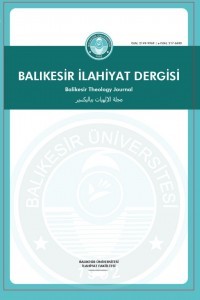Modern Veriler Işığında İslam Hukukunda Uyuşturucular Dr. Muhammed Ali El-Bâr
Hukuk, bireyler arası, bireyler ile devlet veya toplum arası ve nihayet devletlerarası hakları ve sorumlulukları düzenleyen normatif bir bilimdir. İslam hukuku ise bu üç alana ek olarak Yaratan ile yaratılanların hak ve ödevlerini de düzenlemektedir. Bu düzenlemeler fıkıh literatüründe ibâdât adıyla anılır. Bireyin yaptığı bir fiilin kendisine, çevresindekilere veya topluma kısa, orta veya uzun vadede zarar gelmesi durumunda, yasa koyucu tarafından karşılığında bir ceza düzenlenmiş olması koşuluyla, bir suçtan bahsedilebilmektedir. İslam ceza hukuku, fıkıh literatüründe ukûbât genel başlığı altında yer bulmaktadır. Suç ve ceza Şârî Teâlâ tarafından Kur’an ve sünnet nasslarında tespit edilmişse had, tespiti dönemin şartlarına göre yöneticilere bırakılmışsa tazir kavramı ile karşılanır. Hadlerden zina, hırsızlık, kazf (iffete iftira), hirâbe (yol kesme ve terör) suç ve cezası Kur’an ile belirlenmiş olup, içki ise haramlığı Kur’an’da belirtilmesine rağmen cezası sünnetle tespit edilmiştir. Uyuşturucu ve sakinleştirici maddelerin neler olduğu, üretimi, kullanımı, bulundurulması, satışı ve elden ele dolaştırılmasının hükmü ile ilgili Muhammed Ali el-Bâr tarafından yazılan ve Mecelletü’l-Mecma’ı’l-Fıkhi’l-İslâmî’de yayınlanan ‘‘el-Muhaddirât fi’l-fıkhi’l-İslâmî ‘alâ dav’i’l-mu‘tayâti’l-muâsira’’ adlı makalesini ‘‘Modern Veriler Işığında İslam Hukukunda Uyuşturucular’’ adıyla tercüme ettik.
Anahtar Kelimeler:
İslam Hukuku, Fıkıh, Ceza Hukuku, Uyuşturucular
Durgs in Islamic Law in The Light of Modern Data
Law is a normative science that regulates interpersonal, interpersonal and state or community and finally interstate rights and responsibilities. In addition to these three areas, Islamic law regulates the rights and duties of the Creator and those created. These arrangements are called as ibâdât in fiqh literature. An offense can be mentioned in the event that an act committed by an individual causes harm to himself, his environment or society in the short to medium or long term, provided that a penalty is imposed by the lawmaker. Islamic criminal law is included in the fiqh litarature under the general title of ukûbât. If the crime and punishment were determined by Shari Ta'ala in the Qur'an and the Sunnah nass, hadd, the determination is left to the rulers according to the conditions of the period is met with the concept of condolence. The crime and punishment of adultery, theft, kazf (slander to slander), hirâbe (cut-off and terror) were determined by the Qur'an and the drink was determined by sunne, although its haram was stated in the Qur'an. We translated the article ‘al-Muhaddirât fi'l-fıkh'l-Islamî alâ dav'i'l-mu'tayâti'l-muâsıra’ written by Muhammed Ali al-Bâr and published in Mecelletü'l-Mecma‘ı'l-Fıkhi'l-İslâmî about the provision of drugs and tranquilizers, production, use, possession, sale and circulation of drugs, under the title ‘‘Drugs in Islamic Law in the Light of Modern Data.’’
Keywords:
Islamic Law, Fiqh, Criminal Law, Drugs,
___
- Muhammed Ali el-Bâr, ‘‘el-Muhaddirât fi’l-fıkhi’l-İslâmî alâ dav’i’l-mu’tayâti’l-muâsıra’’, Mecelletü’l-mecma’ı’l-fıkhi’l-İslâmî, yıl: 2, sayı: 3, s. 113-126, 1409/1989.
- ISSN: 2149-9969
- Yayın Aralığı: Yılda 2 Sayı
- Başlangıç: 2015
- Yayıncı: Balıkesir Üniversitesi
Sayıdaki Diğer Makaleler
Yaşlanma Sürecinde Dini Hayat, Abdullah İnce (Diyanet Vakfı Yayınları-2018)
İlimler Tasnifi Literatürü Denemesi
Diğer Dillerden Konuşanlar İçin Arapça Öğretiminde Kısa Metrajlı Kurgu Filmin Rolü
Modern Veriler Işığında İslam Hukukunda Uyuşturucular Dr. Muhammed Ali El-Bâr
